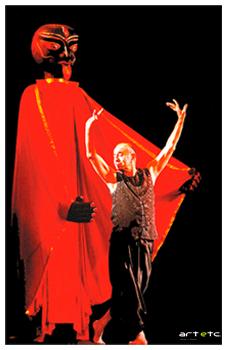- Publisher's Note
- Editorial
- Guerrilla Girls: The Masked Culture Jammers of the Art World
- Creating for Change: Creative Transformations in Willie Bester’s Art
- Radioactivists -The Mass Protest Through the Lens
- Broot Force
- Reza Aramesh: Action X, Denouncing!
- Revisiting Art Against Terrorism
- Outlining the Language of Dissent
- In the Summer of 1947
- Mapping the Conscience...
- 40s and Now: The Legacy of Protest in the Art of Bengal
- Two Poems
- The 'Best' Beast
- May 1968
- Transgressive Art as a Form of Protest
- Protest Art in China
- Provoke and Provoked: Ai Weiwei
- Personalities and Protest Art
- Occupy, Decolonize, Liberate, Unoccupy: Day 187
- Art Cries Out: The Website and Implications of Protest Art Across the World
- Reflections in the Magic Mirror: Andy Warhol and the American Dream
- Helmut Herzfeld: Photomontage Speaking the Language of Protests!
- When Protest Erupts into Imagery
- Ramkinkar Baij: An Indian Modernist from Bengal Revisited
- Searching and Finding Newer Frontiers
- Violence-Double Spread: From Private to the Public to the 'Life Systems'
- The Virasat-e-Khalsa: An Experiential Space
- Emile Gallé and Art Nouveau Glass
- Lekha Poddar: The Lady of the Arts
- CrossOver: Indo-Bangladesh Artists' Residency & Exhibition
- Interpreting Tagore
- Fu Baoshi Retrospective at The Metropolitan Museum of Art
- Random Strokes
- Sense and Sensibility
- Dragons Versus Snow Leopards
- What Happened and What's Forthcoming
- Art Events Kolkata, February – March 2012
- Mumbai Art Sighting
- Art Bengaluru
- Delhi Dias
- Musings from Chennai
- Preview, March, 2012 – April, 2012
- In the News, March 2012
- Cover
ART news & views
Interpreting Tagore
Issue No: 27 Month: 4 Year: 2012
 Hyderabad. If one had to name one dancer who has elevated modern dance in India to an art form, it would be Astad Deboo. He has created a classic dance form that is contemporary yet Indian unlike any other. For those not familiar with his work, Deboo's repertoire includes choreographed pieces where thang-ta (martial arts), the martial art from Manipur was used, along with swords and spears. He uses pungcholam, drums from Manipur for the music and his dance is a blend of Kathak, Kathakali and modern styles. He combines the three to create movements that are unique and denote oneness of the body, mind and soul. Deboo has received Sangeet Natak Akademi Award and has also been conferred with the Padma Shri. His work has been seen in 65 countries.
Hyderabad. If one had to name one dancer who has elevated modern dance in India to an art form, it would be Astad Deboo. He has created a classic dance form that is contemporary yet Indian unlike any other. For those not familiar with his work, Deboo's repertoire includes choreographed pieces where thang-ta (martial arts), the martial art from Manipur was used, along with swords and spears. He uses pungcholam, drums from Manipur for the music and his dance is a blend of Kathak, Kathakali and modern styles. He combines the three to create movements that are unique and denote oneness of the body, mind and soul. Deboo has received Sangeet Natak Akademi Award and has also been conferred with the Padma Shri. His work has been seen in 65 countries.
Moving Images presented Astad Deboo's new production, Interpreting Tagore, based on Tagore's poetry, which was performed on 8th January, 2012 to commemorate the 150th birth anniversary of poet and Nobel laureate Rabindranath Tagore. Deboo danced with his protégées from the Salaam Baalak Trust at Taramati Baradari, Hyderabad. The Interpreting Tagore premiered in Mumbai and then went to Hyderabad. It will be presented at G.D. Birla Sabhaghar, Kolkata on 11th April, 2012. In September 2012, the work goes on a European tour.
Interpreting Tagore uses world music, movement and alternative theatre forms, like puppets and masks, as well as poetry recitation. The music doesn't include any Rabindra sangeet. Performances like Walking Tall is based on Tagore's poem Ekla Chalo Re, Your Grace is based on Goddess Kali and Awakening, based on the poem Every Fragment of Dust is Awakened. The new piece is called Surrender. Surrender is set to a dhrupad composition by Italian vocalist Amelia Cuni. All my music has an international flavour as it features compositions by Japanese composer Yoichiro Yoshikawa, Frederico Senesei, an Italian tabla player from Milan and Liro Rantala, a Finnish pianist.
His choreography entitled ContraPosition with the Clarke School has travelled across India, Southeast Asia, Europe and Australia. The Astad Deboo Foundation, formed in 2002, aims to provide creative training to both the able and the disabled, and to facilitate the artistic development of talented deaf dancers.